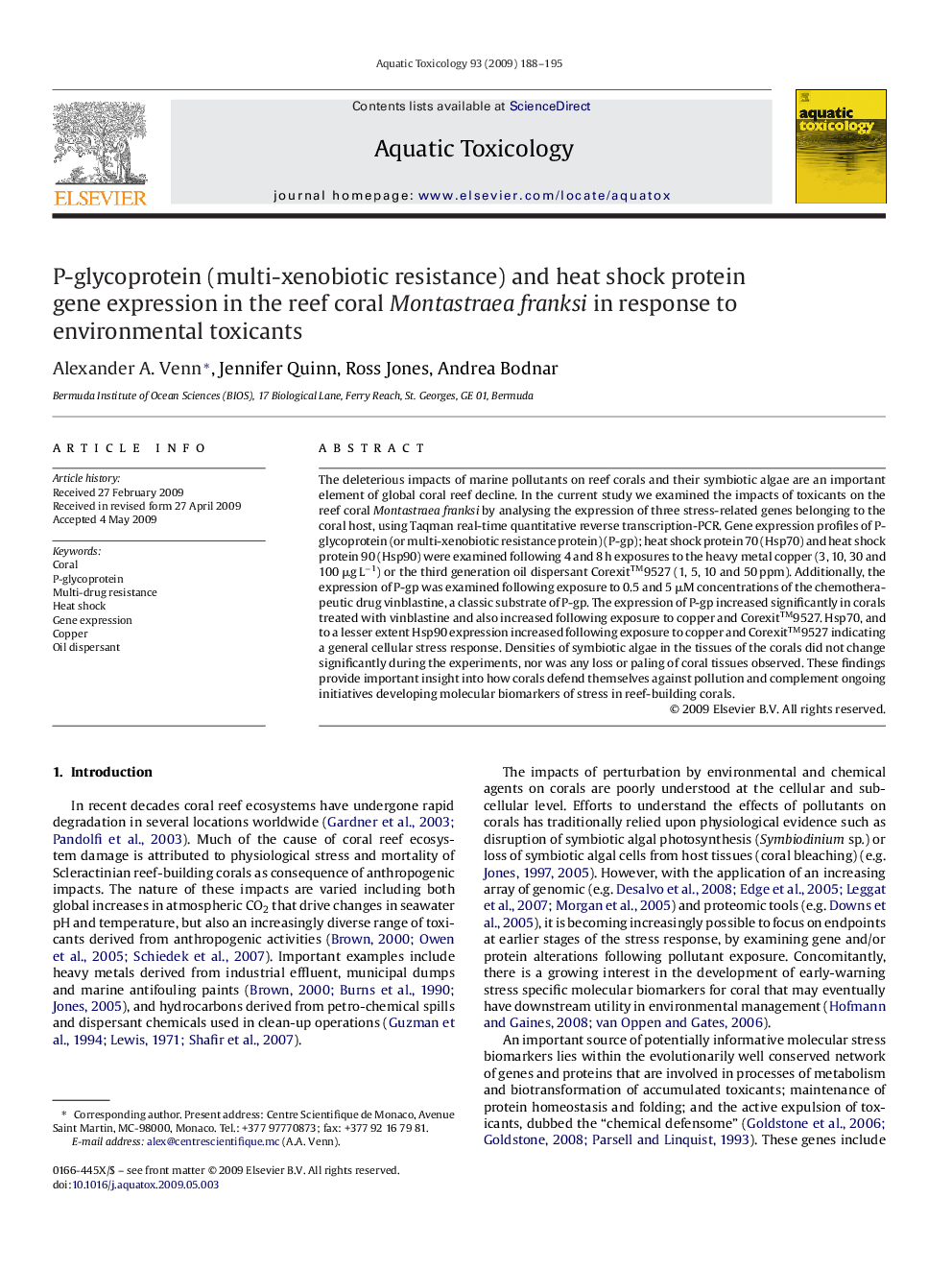| Article ID | Journal | Published Year | Pages | File Type |
|---|---|---|---|---|
| 4530535 | Aquatic Toxicology | 2009 | 8 Pages |
The deleterious impacts of marine pollutants on reef corals and their symbiotic algae are an important element of global coral reef decline. In the current study we examined the impacts of toxicants on the reef coral Montastraea franksi by analysing the expression of three stress-related genes belonging to the coral host, using Taqman real-time quantitative reverse transcription-PCR. Gene expression profiles of P-glycoprotein (or multi-xenobiotic resistance protein) (P-gp); heat shock protein 70 (Hsp70) and heat shock protein 90 (Hsp90) were examined following 4 and 8 h exposures to the heavy metal copper (3, 10, 30 and 100 μg L−1) or the third generation oil dispersant Corexit™9527 (1, 5, 10 and 50 ppm). Additionally, the expression of P-gp was examined following exposure to 0.5 and 5 μM concentrations of the chemotherapeutic drug vinblastine, a classic substrate of P-gp. The expression of P-gp increased significantly in corals treated with vinblastine and also increased following exposure to copper and Corexit™9527. Hsp70, and to a lesser extent Hsp90 expression increased following exposure to copper and Corexit™9527 indicating a general cellular stress response. Densities of symbiotic algae in the tissues of the corals did not change significantly during the experiments, nor was any loss or paling of coral tissues observed. These findings provide important insight into how corals defend themselves against pollution and complement ongoing initiatives developing molecular biomarkers of stress in reef-building corals.
